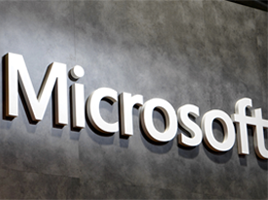Traditional ERP companies are beginning to offer real-time analytics, with an intent to help companies leverage data even on mobile phones.

Traditionally, ERP systems have always been focussed on records and not enough emphasis was on the value of the information consisting in those records. While some Indian corporates started making investments in data, the return on these investments were taking a lot of time. “Many customers found it too slow, too expensive and too rigid to have any meaningful analytics and that too, on stale data,” said Rohit Mathur, Chief Strategy Officer, Ramco Systems.
Things are now slowly starting to change. The advent of cloud computing coupled with a surge in smartphone adoption are some of the factors that are influencing the way customers look at ERP companies. Cloud Delivery and Mobile Accessibility are increasingly becoming baseline expectations in ERP conversations today. Organisations are now beginning to turn to ERP solutions providing real-time analytics to help decision-makers leverage data at every stage in their business cycle, according to Sanchit Vir Gogia, Chief Analyst, Greyhound.
Technology giant SAP, with its S/4 HANA is seeing some amount of traction in the Indian market. “With SAP S/4 HANA huge volumes of structured and unstructured data, including text data, can be instantly accessed from different sources,” said Rohit Nagarajan, Vice President and Head of Database, SAP APJ.
The company has bagged deals from Tata Power Delhi Distribution Limited, Usha International, ICHIBAN Crop Science, amongst others for using its HANA technology.
The industry is also seeing early signs of adoption of cloud-based ERP along with increased adoption of IoT sensors, machine learning and advanced analytics as it is yielding faster return on tech investments and at the same time does not require large capex. “This can potentially help organisations leverage Manufacturing-as-a-Service: a model which enables organisations to pay only for the time they use a factory”, said Anshoo Nandwaani, VP & Principal Analyst at Greyhound Research. We do see the adoption of real time analytics in critical time bound decisions that save money and resources in situations where the planning/scheduling needs to be done immediately, if unforeseen, added Mathur.
A large part of this shift in the approach of traditional ERP companies is also due to new entrants. “While traditional ERP players like Oracle, SAP, Microsoft currently own a lion’s share of the global ERP software market, there is no denying that they are under pressure. Nimble and Agile players like Eplicor, Intacct, Ramco among others, who offer SaaS ERP systems are proving to be formidable competition,” said Gogia.
Author: Venkatesh Ganesh




